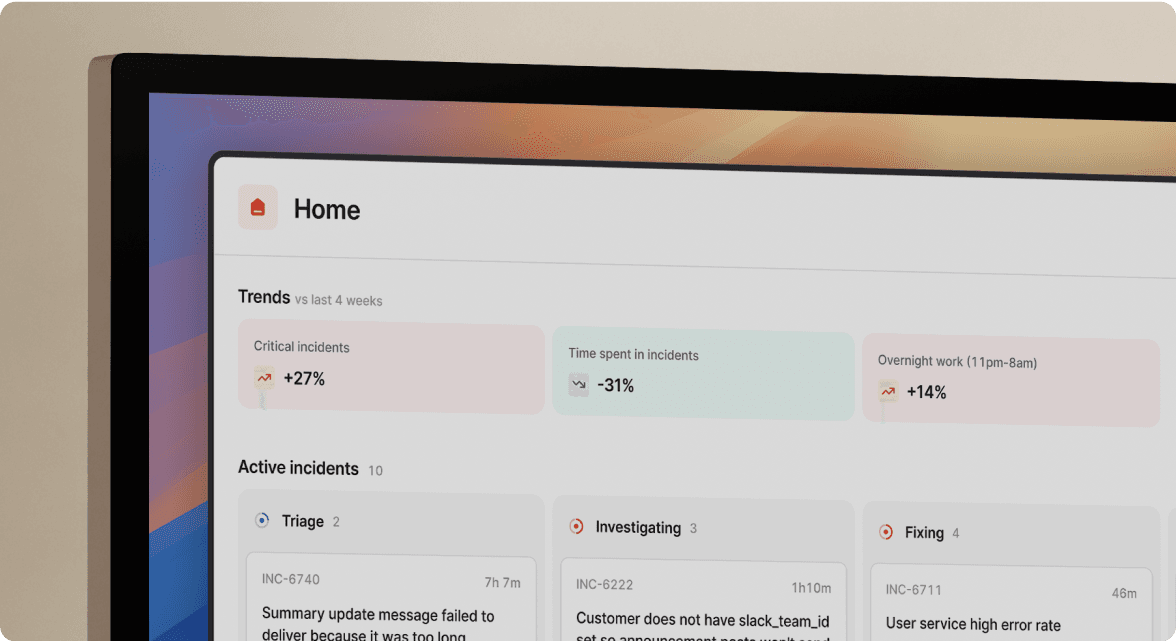Alert timeline
October 22, 2024

Alert Sources and Alert Routes enable you to receive alerts from external systems and automatically create incidents and/or escalations. While there are several powerful ways to interact with your alerts, it can be hard to keep track of them when you're receiving many at once.
This week, we've added a new timeline view to the alert details page, giving you a bird's eye view of how your alert was routed in incident.io. Now you can see details like:
- How an alert was grouped with other alerts based on time windows and attributes like Team or Service.
- Whether the alert created an escalation with a grace period—a useful way to avoid repeatedly notifying someone who's already responding to an incident.
- If the alert automatically created an incident, or if it created one later because someone marked the alert as unrelated to its original incident(s).
- When an alert resolves and how it was resolved: by the upstream alert source, manually by a user, or automatically when an associated incident was declined.

Want to see it in action? Check out the live demo walkthrough with our Co-founder and CPO, Chris:
🚀 What else we’ve shipped
New
- You can now escalate an incident through PagerDuty, Opsgenie, and other providers directly from an incident's dashboard page.
Bug fixes
- Fixed a bug where the override date header would sometimes show incorrect dates when viewed in a timezone different from the schedule's timezone.
- You can now use working hours conditions for the time to acknowledge in the last level of an escalation path.
- Fixed an issue that prevented admins from creating custom insights dashboards.
- We now show who completed a post-incident task to set incident timestamps.
- Improved the suggestions for expressions in your alert attributes.
- Fixed a bug where navigating back from creating an alert source would incorrectly return you to your alerts configuration instead of the alert route.
- The on-call status pill on your schedule will now automatically refresh when updated, rather than requiring a manual refresh.
- Fixed a bug where clicking on an existing override would lead to creating a new one instead of editing it.
- Fixed a bug where clicking "Connect to HTTP" in the alert source list would not pre-select the HTTP alert source if you'd already searched for another keyword.
Improvements
- We no longer show the 'Declare an incident' toggle when escalating from an incident's dashboard page.
- Improved handling of large imports in the catalog-importer.
- You'll be notified if you can't connect a schedule to a Slack user group because the name is already in use.
- Made small improvements to the Android navigation tab bar.
- We'll stop showing the Dashboard attribute for alert sources where we don't automatically set the external dashboard URL.
So good, you’ll break things on purpose
Ready for modern incident management? Book a call with one of our experts today.

We’d love to talk to you about
- All-in-one incident management
- Our unmatched speed of deployment
- Why we’re loved by users and easily adopted
- How we work for the whole organization



